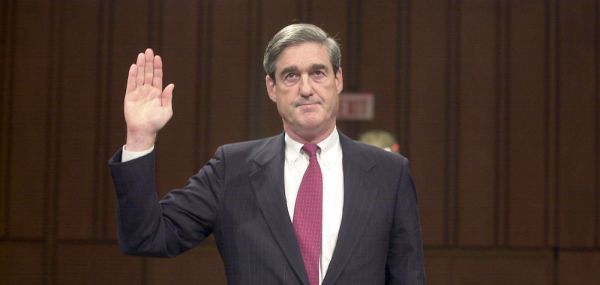

The Department of Justice has appointed Robert Swan Mueller III, former FBI director and Marine veteran who fought in Vietnam, as a special counsel to investigate ties between President Donald Trump’s 2016 campaign and Russian government officials, Deputy Attorney General Rod Rosenstein announced on May 17.
In a town defined by political greed and backstabbing, Mueller has a sterling reputation. The longest-serving FBI director since J. Edgar Hoover, he’s been described by biographer Garrett Graff, author of “The Threat Matrix: The FBI at War in the Age of Global Terror,” as “deeply nonpartisan, deeply apolitical” and “as straight an arrow as they come,” a disciple of law and order who transformed the FBI from a domestic law enforcement agency into a global counterterrorism and counterintelligence agency after 9/11.
Mueller’s commitment to public service, unique in the swamp of modern-day Washington, comes not just from his experience in law enforcement but his time in the Marine Corps. While most of his fellow Princeton graduates were trying to figure out how to avoid the draft, Mueller was motivated to join in 1968 by the death of his friend and lacrosse teammate David Hackett, a Marine Corps first lieutenant killed by small arms fire in Vietnam.
“I have been very lucky. I always felt I should spend some time paying it back,” he told UVA Lawyer in 2002. “There were a number of us who felt we should follow [Hackett’s] example and at least go into the service. And it flows from there.”
Hackett’s example of sacrifice and duty has shaped Mueller’s view of leadership since. “One would have thought that the life of a Marine, and David’s death in Vietnam, would argue strongly against following in his footsteps. But many of us saw in him the person we wanted to be,” Mueller told the Princeton Alumni Weekly in February 2012. “And a number of his friends, teammates, and associates joined the Marine Corps because of him, as did I… He taught us the true meaning of leadership. One teammate can change your life. And David Hackett changed mine.”
Mueller plowed through officer candidate school at Marine Corps Base Quantico, Army Ranger School, and Army jump school before he was shipped out to Vietnam, according to Time. Commander of a rifle platoon of the 3rd Marine Division, he was a recipient of the Bronze Star with Valor, two Navy Commendation Medals, the Purple Heart, and the Vietnamese Cross of Gallantry, according to his FBI bio.
His citation for the Bronze Star with Valor, his first decoration earned just weeks after arriving in Vietnam in December 1968 after his platoon came under heavy fire in the Quang Tri Province, lauded Mueller’s “courage, aggressive initiative, and unwavering devotion to duty.”
“Second Lieutenant Mueller fearlessly moved from one position to another,” the citation reads, according to Graff. “With complete disregard for his own safety, he then skillfully supervised the evacuation of casualties from the hazardous area and, on one occasion, personally led a fire team across the fire-swept area terrain to recover a mortally wounded Marine who had fallen in a position forward on the friendly lines.
That same devotion to duty would serve Mueller just four months later in April 1969, when, as a second lieutenant, he led his platoon to rescue American troops pinned down under heavy fire from the Vietcong. Despite taking an AK-47 round through the thigh, Mueller held his position until the troops had safely retreated. The firefight earned him a Navy Commendation Medal and his Purple Heart; a month later, he was back on patrol in the jungles of Vietnam (“I thought I’d at least get to go to a hospital ship,” he reportedly quipped of his injuries.)
According to Graff, Vietnam was “intensely formative” for Mueller, “forging his leadership skills literally under fire.” And Mueller would have spent his life in the Marine Corps had his wife Ann not put her foot down during a brief R&R; stop in Hawaii after his first year in Vietnam. “Under the tropical sun, he told her that he wanted to stay in the Marines as a career,” Graff writes. “She explained that that wasn’t an option, and he eventually relented.”
And thank God it did: If anyone is going to bring law and order to the chaos and muck in Washington today, it’s a Marine.
